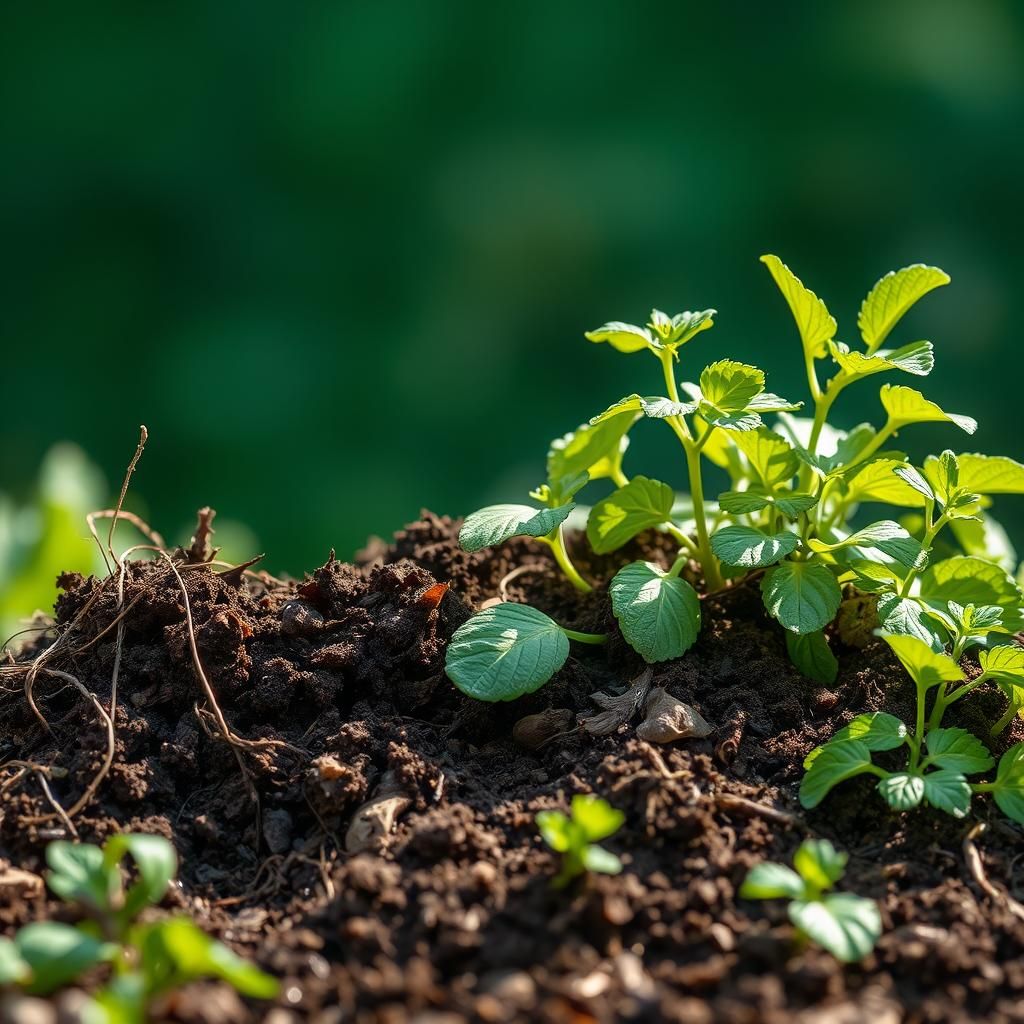Can You Leave Compost Too Long? Understanding the Risks and Best Practices for Composting

Composting is an eco-friendly way to recycle organic waste, but many gardeners wonder about the timing of the process. Can leaving compost too long pose risks? This article explores the potential pitfalls of extended composting periods, including issues like nutrient depletion, foul odors, and pest attraction. Understanding the right balance between allowing decomposition to occur and managing your compost pile effectively is crucial for successful gardening. By following best practices, you can ensure your compost remains beneficial for your plants. Join us as we delve into the intricacies of compost management and how to optimize your results while minimizing risks.
Can You Leave Compost for Too Long?
While composting is an excellent way to recycle organic waste and enrich garden soil, leaving compost for too long can lead to some potential issues. When compost sits in a pile for extended periods without turning or mixing, it may become overly compacted, restricting airflow and leading to anaerobic conditions. This situation can create a foul odor, attract pests, and slow down the decomposition process. Ideally, compost should be turned regularly to maintain proper aeration and moisture levels, ensuring that it remains a healthy and effective amendment for your garden.
Signs of Over-Ripened Compost
One of the most apparent signs that compost has been left too long is an unpleasant odor resembling rotten eggs or ammonia. This smell indicates that the compost has become anaerobic and is not breaking down properly. Additionally, over-ripened compost may appear overly moist and compacted, with minimal activity from earthworms or other beneficial organisms. Recognizing these symptoms early allows you to intervene by turning the pile or adding dry materials to improve aeration.
Impact on Nutrient Quality
Compost that remains untouched for too long can lose its nutrient quality. Extended decomposition can lead to nutrient leaching, particularly of nitrogen, which is crucial for plant growth. When compost breaks down beyond its optimal point, it may become less beneficial to plants, leading to poor soil structure and lower nutrient availability. To ensure the highest quality of compost, it is crucial to monitor its condition and use it within a reasonable timeframe.
Effects on Soil Structure
Leaving compost too long can adversely affect the soil structure when applied. Overly decomposed compost can become too fine and lose its ability to improve soil aeration, drainage, and moisture retention. Instead of enhancing the soil, it might contribute to compaction and diminish the biological activity needed for healthy plant growth. It's vital to use well-aged compost that maintains its texture and structure to promote a thriving garden ecosystem.
See also:
Best Practices for Compost Management
To avoid issues related to compost being left too long, it's essential to follow best practices in compost management. Regularly turn the compost pile every few weeks to aerate it, ensuring proper decomposition conditions. Monitor moisture levels, aiming for a consistency similar to a wrung-out sponge. Incorporating a balance of brown (carbon-rich) and green (nitrogen-rich) materials will help maintain nutrient levels and promote efficient decomposition.
When to Use Compost
Knowing the ideal time to use compost is essential for maximizing its effectiveness in the garden. Generally, compost is ready to use when it has a dark, crumbly texture and an earthy smell. This typically occurs between 2 to 6 months after the composting process begins, depending on materials used and environmental conditions. Using compost at this stage ensures that it retains its nutrients and beneficial microbes, providing plants with the best possible growing environment.
| Characteristics | Overly Ripened Compost | Healthy Compost |
|---|---|---|
| Odor | Foul, rotten | Earthy |
| Moisture | Excessively moist | Balanced |
| Texture | Compact | Crumbling |
| Nutrient Availability | Poor | High |
| Microbial Activity | Low | High |
Potential Consequences of Over-Ripe Compost
Leaving compost for an extended period can lead to several risks, such as the breakdown of nutrients and the development of unpleasant odors. When compost is left too long, it may become overly acidic or anaerobic, which can hinder the breakdown process. This may also attract pests and create an environment that is less than ideal for beneficial microorganisms that aid in decomposition. Understanding these consequences is vital for maintaining the health of your compost and ensuring it serves its intended purpose in enriching your garden soil.
Signs of Over-Ripe Compost
Identifying signs of over-ripe compost is crucial for effective compost management. Some common indicators include an unpleasant smell, often reminiscent of rotten eggs or sewage, which suggests a lack of aeration or excess moisture. Additionally, if you notice a dark and soggy texture with very little plant material left, it's a sign that the compost has been left for too long. Healthy compost should have a balanced aroma and a crumbly texture, indicating that it is in the right stage of decomposition.
Best Practices for Monitoring Compost
To prevent compost from becoming over-ripe, it is essential to implement best practices for monitoring its progress. This includes regularly turning the compost to enhance aeration and promote even decomposition. Keeping an eye on the moisture content is also key; the compost should be as moist as a wrung-out sponge. Additionally, using a thermometer can help gauge the internal temperature, ensuring it reaches optimal composting levels while avoiding prolonged anaerobic conditions.
See also:
Importance of Timing in Composting
Timing plays a significant role in successful composting. Compost can benefit from specific timeframes for optimal breakdown, which typically ranges from 3 to 6 months, depending on materials used and environmental conditions. Regularly assessing the temperature and appearance of the compost will not only help determine when it is ready to use but also prevent it from sitting stagnant for too long. A timely approach ensures that nutrients remain available and increases the overall efficacy of the compost when applied to garden beds.
Impact on Nutrient Availability
Leaving compost unattended for too long can severely impact the availability of crucial nutrients. As the compost matures beyond its ideal point, essential nutrients like nitrogen, phosphorus, and potassium may become depleted or locked in a form that is less accessible for plant uptake. Overripe compost can also lead to a decrease in microbial activity necessary for nutrient cycling, which ultimately reduces the fertility of the compost and its effectiveness in promoting plant growth.
Adjusting Compost When It's Too Old
If compost is found to be too old, several adjustments can help restore its quality. Adding new materials and oxygen by turning the pile can help reactivate the decomposition process. Mixing in more brown materials like dried leaves or straw can balance excess nitrogen and absorb moisture. Additionally, incorporating compost activators or microbial inoculants can reintroduce beneficial organisms that support breakdown, ultimately bringing the compost back into a usable state.
Questions from Our Readers
Can you leave compost too long?
Yes, you can leave compost too long, which may result in it becoming overly decomposed or even turning into soil. However, this can lead to a loss of some nutrients, making it less effective for gardening and plant growth if not managed properly.
What happens if compost sits too long?
When compost sits too long, it can become anaerobic, resulting in a foul smell and potentially harming the microbial life within it. Proper aeration and turning the pile regularly can help maintain its health and effectiveness.
See also:
How long is too long for compost?
A general guideline is that compost should be used within six months to a year; beyond this timeframe, the nutrient profile may diminish. Frequent monitoring and turning can help ensure it stays active and beneficial.
Can old compost still be useful?
While old compost may have lost some of its nutrient value, it can still be at least partially beneficial, especially for improving soil structure and drainage. Mixing it with fresh compost can enhance its viability in your garden.

If you want to read more articles like Can You Leave Compost Too Long? Understanding the Risks and Best Practices for Composting, we recommend you check out our Compost category.
Leave a Reply
Related Articles